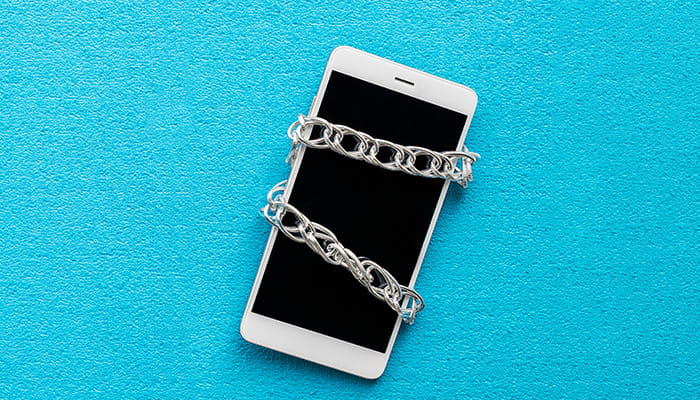First US State to Use Sports Betting Tech for Social Media Restriction
 Recently, Montana made headlines for being the first state in the US to pass laws outlawing the use of TikTok, a well-known social media platform owned by China’s ByteDance. The law was approved by Governor Greg Gianforte and will go effective on January 1, 2024. The action is being taken in response to concerns that TikTok might endanger the privacy and security of US citizens by exchanging personal information with the Chinese government and disseminating pro-Beijing propaganda.
Recently, Montana made headlines for being the first state in the US to pass laws outlawing the use of TikTok, a well-known social media platform owned by China’s ByteDance. The law was approved by Governor Greg Gianforte and will go effective on January 1, 2024. The action is being taken in response to concerns that TikTok might endanger the privacy and security of US citizens by exchanging personal information with the Chinese government and disseminating pro-Beijing propaganda.
In order to enforce the ban, Montana officials are contemplating deploying geofencing technology, which is currently used in online sports betting applications. GPS, radio frequency ID, Wi-Fi, or cellular data are used in geofencing to create virtual boundaries around specific physical locations known as geofences. When a mobile device running a certain app reaches or leaves predefined boundaries, preprogrammed actions may be initiated.
Which State Has Been Using This Technology to Regulate Online Sports Betting?
The state of New Jersey, which legalized online sports betting in 2013, has successfully used geofencing. Because New Jersey is geofenced, only users within the state may place sports wagers; users from outside the state are unable to access the betting services. This method has shown to be successful in restricting access based on location.
Although the geofencing approach seems promising for putting Montana’s TikTok ban into effect, there are serious worries regarding how it will be carried out. TikTok must be stopped by the businesses that permit users to download or utilize the program. TikTok, Apple, and Google may all be included. But it’s not clear how the legislation would hold these businesses responsible if they break the law.
The companies that run the app marketplaces for Android and iPhone handsets, Apple and Google, have not yet offered any comments on the matter. TechNet, a trade organization that represents both companies, claims that app stores do not yet have the ability to geofence apps based on state boundaries.
However, a number of technologies are available to limit app access based on geography, according to cybersecurity experts consulted by The Associated Press. They acknowledge the shortcomings of these technologies, which may be circumvented by utilizing virtual private networks (VPNs) and other location-shielding techniques.
Senator Shelley Vance of Montana, the bill’s proponent, contends that TikTok should be subject to the same regulations as companies that run sports betting applications in order to be prohibited from operating in the state. On the other hand, businesses having gaming licenses in several US states may not be as concerned about the possibility of fines in a single state.
Legal Challenges Expected as TikTok Vows to Fight Back
Furthermore, significant legal obstacles are predicted for Montana’s TikTok ban. TikTok has already vowed to fight the ban, and Montanan business owners who rely on the app to promote their brands are likewise against the idea. The Montana American Civil Liberties Union (ACLU) contends that the ban violates the First Amendment and intends to take legal action to prevent its passage.
The recent TikTok ban in Montana has sparked discussion about the potential application of geofencing technology to restrict access to the app inside the state. While geofencing has been utilized successfully in the context of online sports betting, it is more challenging to apply it to social networking sites. Legal challenges to the TikTok ban are likely, including opposition from TikTok, Montana business owners, and the ACLU.
 By Matt Speakman,
By Matt Speakman,

 Chicago Unveils New Casino Plans with Bally’s
Chicago Unveils New Casino Plans with Bally’s AGS New Slot Game ‘3X Ultra Diamond’ Ranked Number One
AGS New Slot Game ‘3X Ultra Diamond’ Ranked Number One Spain Emerges Victorious in UEFA Euro 2024 Final
Spain Emerges Victorious in UEFA Euro 2024 Final Voter Referendum for Petersburg, Va., Casino Approved in November Election
Voter Referendum for Petersburg, Va., Casino Approved in November Election Maryland Welcomes Betr with License
Maryland Welcomes Betr with License New Jersey DGE Fines Caesars Sportsbook
New Jersey DGE Fines Caesars Sportsbook MGM Prepared to Do Anything to Acquire Entain
MGM Prepared to Do Anything to Acquire Entain Caesars Reveals Plans to Open a Temporary Casino by July Next Year
Caesars Reveals Plans to Open a Temporary Casino by July Next Year Seminole Tribe of Florida Files Replies in the United States Court of Appeals for the District of Columbia
Seminole Tribe of Florida Files Replies in the United States Court of Appeals for the District of Columbia Hollywood Casino Riverboats to Be Moved Inland
Hollywood Casino Riverboats to Be Moved Inland